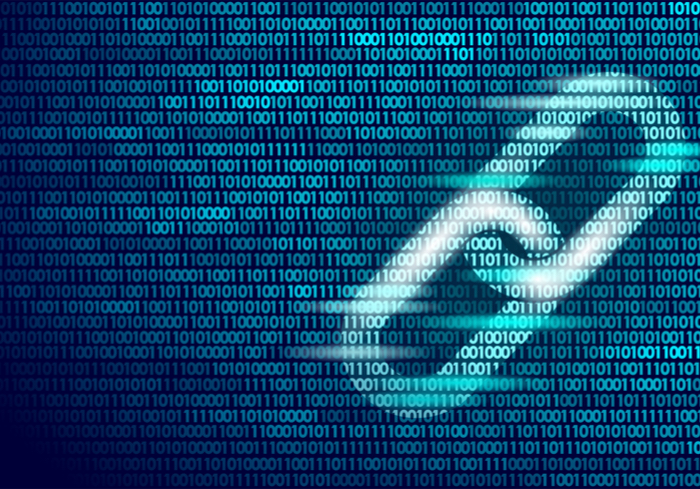 “As the [blockchain] technology pushes the globe towards new economic models, we will only demand more from smart contracts,” Forbes, July 2018.
“As the [blockchain] technology pushes the globe towards new economic models, we will only demand more from smart contracts,” Forbes, July 2018.
From the American Bar Association this September: “In the future, litigation attorneys may no longer be litigating the ‘four-corners’ of the contract, but rather expanding into the intent of the code.”
Smart contracts. We’ve been hearing a lot of hype about them in the media, but are they a business reality yet? Back in 2014, Fast Company called smart contracts “cryptocurrency's killer app.” At that time, it was all about the promise and potential of blockchain and smart contracts. The digital world was coming. And that has not changed: in APQC's 2018 supply chain management priorities and challenges research, respondents rated digitalization as the number one impact on the supply chain in the next three years.
But has the reality of smart contracts finally arrived? Recently, EY released its Marine Hull Insurance product offering that has been built on a blockchain architecture and is supported by the use of smart contracts. TradeLens from Maersk and IBM is a blockchain-enabled shipping solution using smart contracts that has now captured more than 235 million shipping events. So smart contracts are becoming a reality for early adopters.
But what exactly is a smart contract? How does it work? And what are the implications of using them?
Smart contracts are, in their most basic form, an “if, then” statement utilizing inputs to produce one or more outputs. They are agreements between multiple parties written in computer code that execute autonomously once specified conditions have been triggered. In today’s highly complex and fragmented supply chain environment, one way smart contracts are being utilized is to transfer custody of goods as they pass through a supply chain leveraging blockchain.
Smart contracts and their underlying blockchains have been evolving and continue to dramatically develop. I’ve been keeping an eye on blockchain, and documenting some early success stories such as APQC’s case study on the Port of Antwerp and blockchain-as-a-service in oil and gas supply chains.
One common point of murkiness and misconception around smart contracts is that they will replace regular contracts completely. However, this is not the case. Smart contracts are subject to established contract law, and according to a March 2018 publication by Perkins Coie partner, Dax Hansen, will never replace natural-language law—even though they offer increased clarity, auditability, predictability, and ease of enforcement. With so many benefits of smart contracts, several states, including Arizona, California, Florida, Nebraska, Nevada, and New York, are working to hammer out legal frameworks for dealing with the new technology and to make it clear that these new techno-contracts can indeed have legal impact.
To delve more into the realities of smart contracts and blockchain for supply chain, APQC is one of the association partners of the upcoming second edition of XChain2, a two-day event in Houston focused on blockchain, artificial intelligence, and the Internet of Everything (IoE) that promotes education, collaboration, innovation, and research among technologists, stakeholders, solution providers, and business leaders.
At the XChain2 event, Dax Hansen, co-author of multiple white papers on the legalities of smart contracts and distinguished Partner at Perkins Coie, will be joining the panel, “Understanding the Value and Advantages of Utilizing Smart Contracts Over Existing Methods.” Panelists will be discussing:
- What does it mean to digitalize the contract process with respect to real-time delivery and exchange of custody?
- How to enable transactional trust between parties through the use of an immutable ledger
- Understanding the implications of amending or voiding smart contracts
- Considering legal jurisdictions, enforceability issues, and preparing for future regulations

I’m looking forward to the conversations at the event, and if you are or can be in the Houston area December 3 – 4, I hope you can attend as well. XChain2 will be a great opportunity to discover how blockchain and other revolutionary technologies have solved real-world problems in logistics. It will also be a forum to meet subject matter experts who will be showcasing their pilot projects as well as the value they’ve added.
XChain2 is co-organized by Blockchain Technology Initiatives and the Computer Science Department at the University of Houston with support from faculty members from UH’s C.T Bauer Business School. As a partner of this event, APQC is happy to extend a 20% off discount by using code "APQC" upon registration. Please visit blockchainsupplychain.io for more information, to see the full speakers list or agenda.
What do you think about the potential of smart contracts to impact the supply chain? Please tell me what you’re thinking and where you see developments heading, either by commenting below or via Twitter (@MB_APQC).